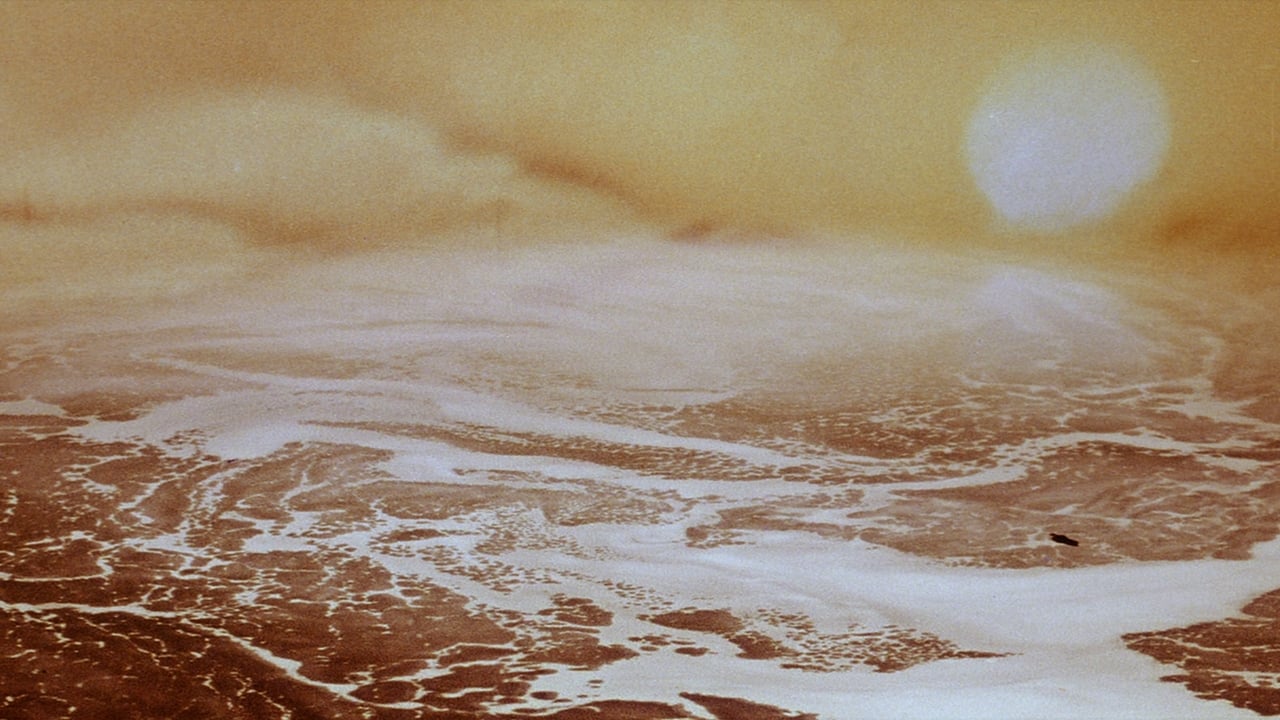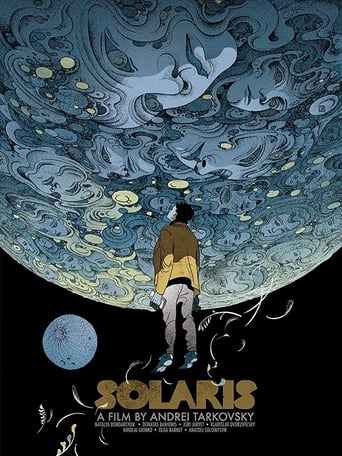

Such a frustrating disappointment
... View MoreGood , But It Is Overrated By Some
... View MoreExcellent but underrated film
... View MoreIt’s not bad or unwatchable but despite the amplitude of the spectacle, the end result is underwhelming.
... View MoreAs many said here already, this movie is not about a story. You have to follow a sequence of images and allow them to hypnotize you. It creates a mood. Or, in some cases, it does not ))
... View MoreHere's a relevant and true-to-life story that completely validates and justifies my low opinion of 1972's "Solaris".Of course - As we all know - "Solaris" (the film) was adapted to the screen by director, Andre Tarkovsky from Sci-Fi writer, Stanislaw Lem's 1961 novel of the same name.So - As the story goes - After a 6-month collaboration - Lem and Tarkovsky's work together ended in a nasty and bitter conflict over unwarranted changes and additions that Tarkovsky was making to the original story.When interviewed about the split - Lem angrily claimed that Tarkovsky had turned his novel into a flimsy and shallow outer space soap opera."He was moving in the opposite direction from my book!" Lem stated.... In other words - Tarkovsky's film ruined the whole essence and philosophical flow of Lem's book.And, after seeing this grossly over-rated disappointment for myself - I couldn't agree more with Lem in his utter outrage towards Tarkovsky and his precious, little picture.
... View MoreIt is the view of many, that Solaris needs to be seen at least twice. The same is, by the way, true with every Tarkovski film. I've seen Solaris several times, also on film, and it has always puzzled me to a degree. The first time I hardly understood the story and I didn't get the ending at all, which seems stupid to me, now. And yet, Solaris is very much a straight-forward, chronological film.It just "connects the dots" in a highly evolved way. For example, there is a sequence about 30 minutes in, that has nothing to do with the plot and doesn't really deepen any of the characters. This sequence lasts a full five minutes, has no dialogue whatsoever and is a series of shots from a car driving forward on a highway in urban Tokyo. Couple of times we're shown a secondary character with his son. Audio track is ultra-modern, atonal and expressive. This seemingly inconsequential scene is my favourite in the whole film. Through pure cinema Tarkovski is able to tell the viewer a lot about the nature of the Earth depicted here. We understand better our desire to expand our limits into the spave. Plus, the sequence is utterly hypnotic, enhanced by a sudden cut to an incredibly gorgeous black-and-white shot of a pond with trees hovering over it.And that is the startegy of Tarkovski. He avoids anything familiar and tries to tell and show us something we DON'T know.After repeated viewings, I still feel that with Solaris Tarkovski was only almost completely successful in his pursuits. I have no main criticism to offer, just minor ones.See, there must be a reason why I still feel that the first 45 minutes SPECIFICALLY of Solaris are among the most beautifully realised in Tarkovski's career. This first part largely takes place in a beautiful countryside cottage. Tarkovski is a great depictor of nature (perhaps the greatest), and there is a slight sense of underwhelm during the rest of the film which takes place in a space station, in interiors. In comparison, Stalker, which takes place mostly in exteriors, is also philosophically a richer piece.Interestingly, Solaris, set on a space station, shows practically none of the surrounding space. Again, Tarkovski works against conventions. This and other practices make Solaris an anti-thesis to Kubrick's 2001. Another example: there are few special effects, most of them of the planet Solaris. On the other hand, they are exceptionally beautiful.About the actors: I love them, but this is not a view shared by all. Understandably. Banionis especially is so understated that it's up to you to decide whether he is lacking something. On the other hand, he makes a great pair to Natalya Bondarchuk's more expressive performance.Solaris is a film by a master film maker with only a handful of equals in history. The result is still unique in the realm of science-fiction.
... View MoreOne of the few Sci-Fis from the East side of Europe. Before I go ahead I must mention as a person, whose parents are from a post-communist country, the freedom what Tarkovsky got during this film is shocking. I don't even understand who it could go out in theatres.I must say this is an unusual Sci-Fi way different then the ones from the US. The actors/actresses look like actors, not playing their role (my favourite is Snaut who looks more like an alcoholic than a Scientist Doctor), what could be a result as they got selected instead of applied and got the job. It made me feel it a bit untrustworthy, but the USSR wasn't the number 1 film producer in the 70's.The story makes absolutely sense. During the cold war both sides spent insane lot of money exploring the space, looking for new planet with live on it, so they created this film showing it to us. And as their looking was unsuccessful, they had to call it Sci-Fi. You watch it, all goes as expected, and when you think it finished you see the last scenes, and you don't understand anymore. Or at least me.The last scene really made me confused and I should watch it again (as many other people recommended), but I didn't find it interesting enough so I just get along and live without the full understanding of one of the greatest Sci-Fis. If you're a Sci-Fi person you should't do the same mistake!
... View More